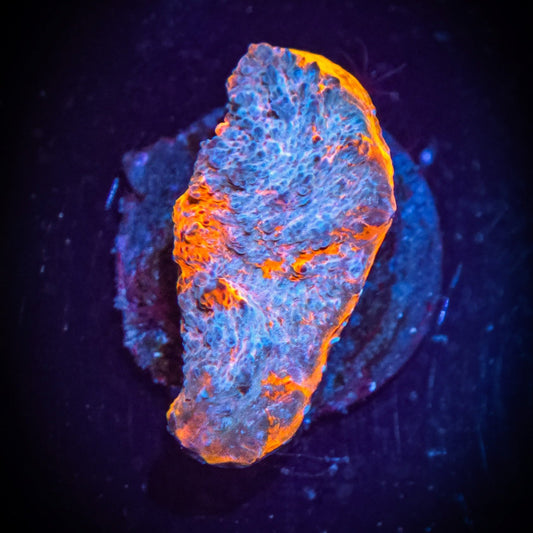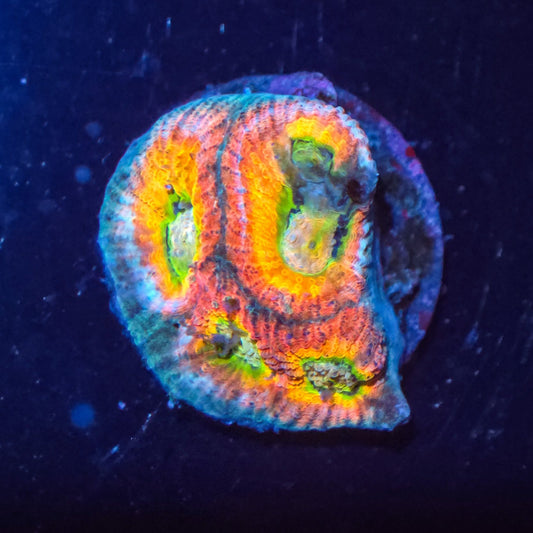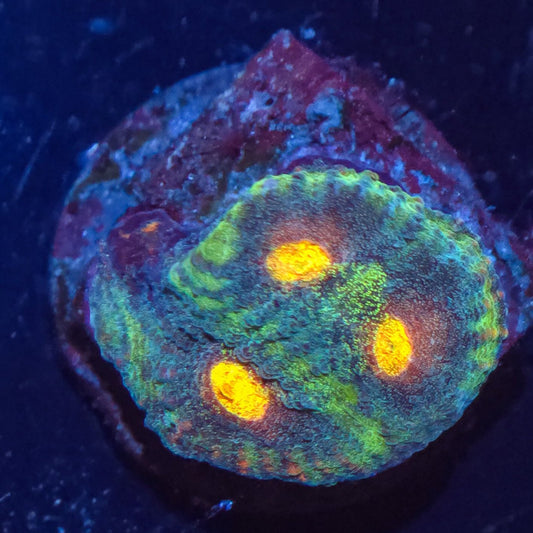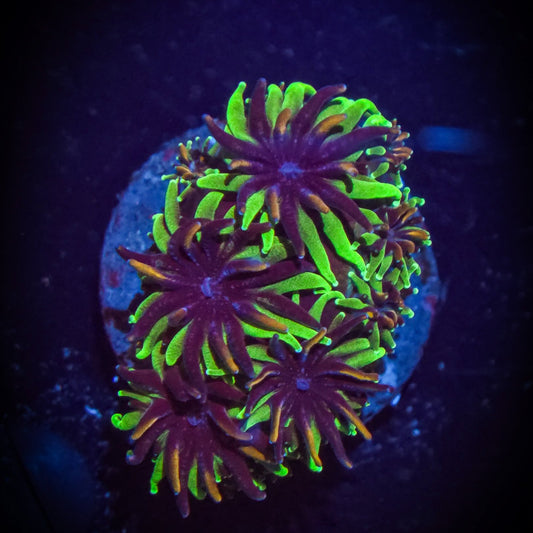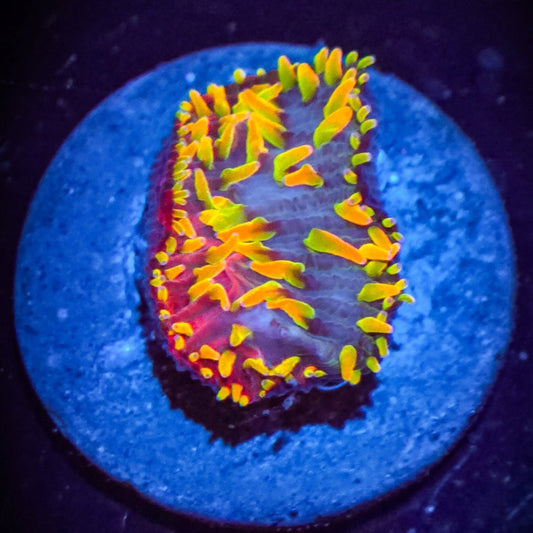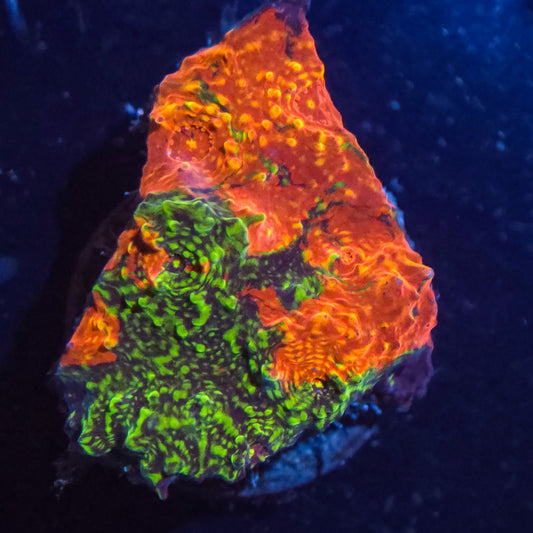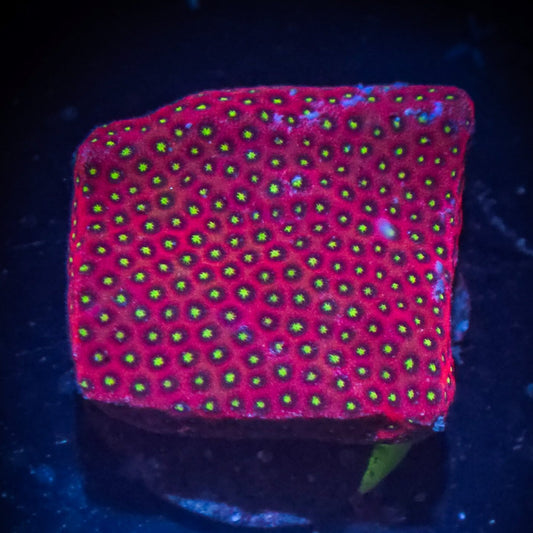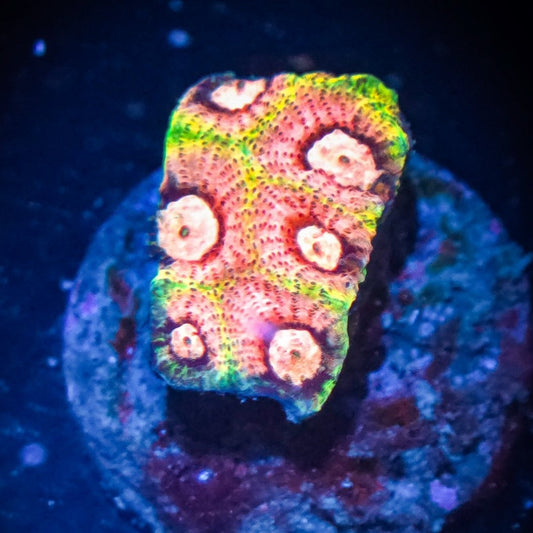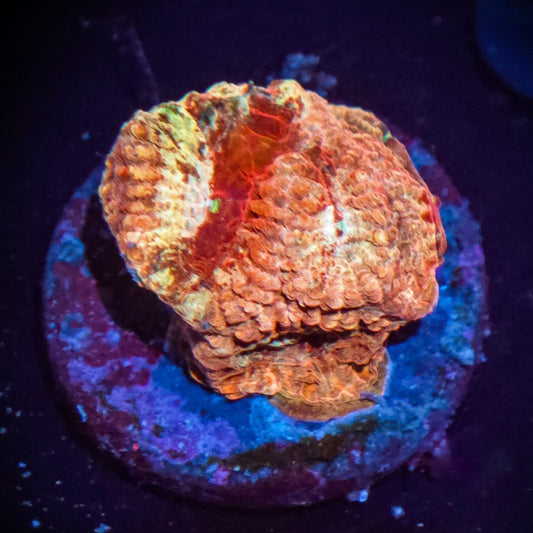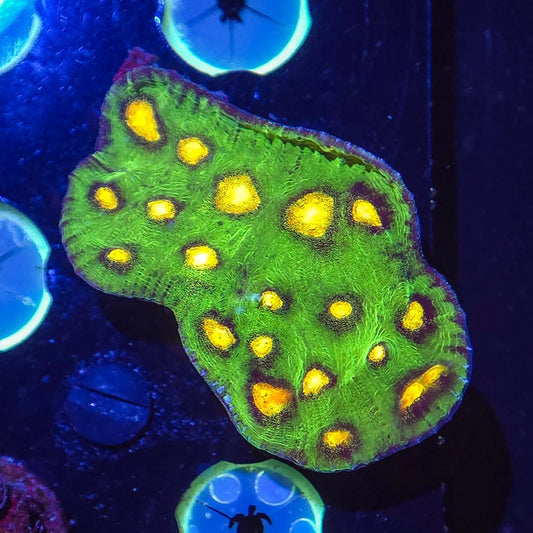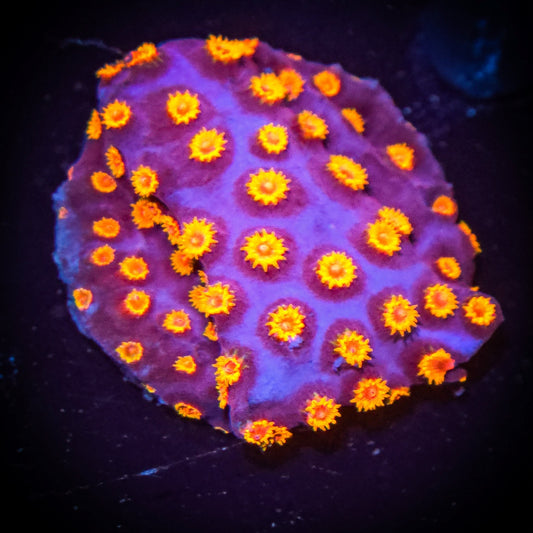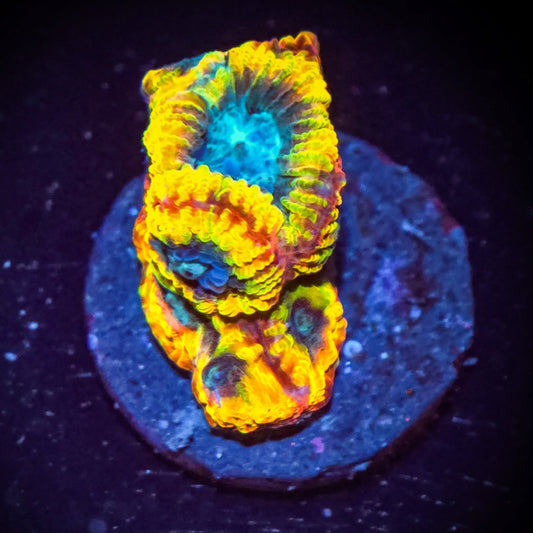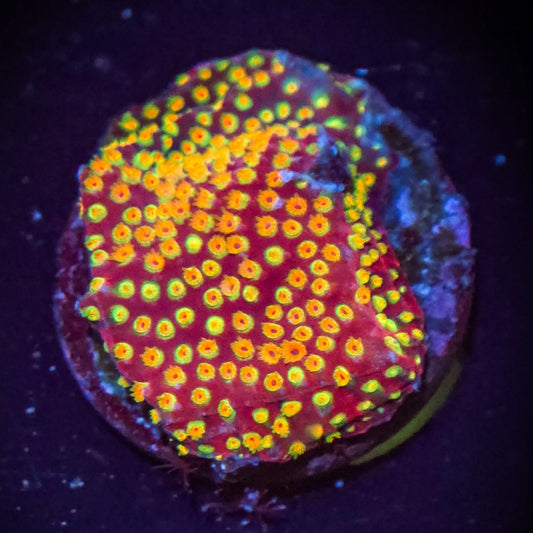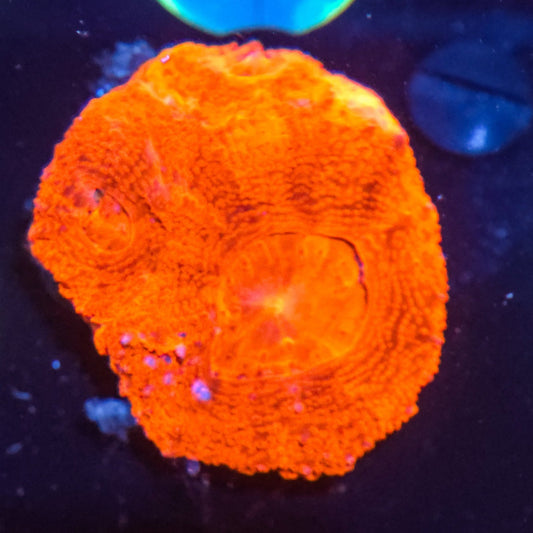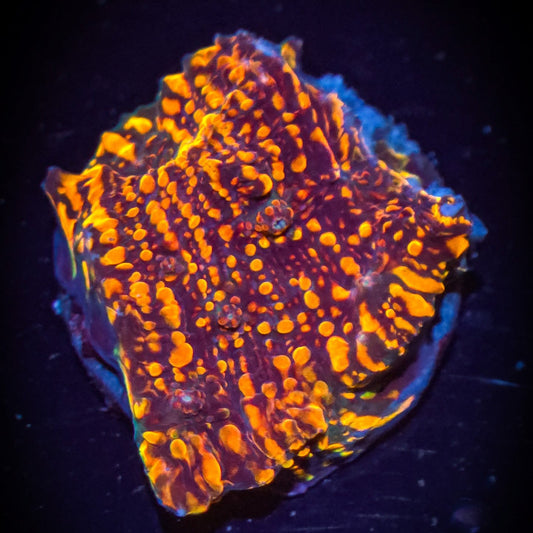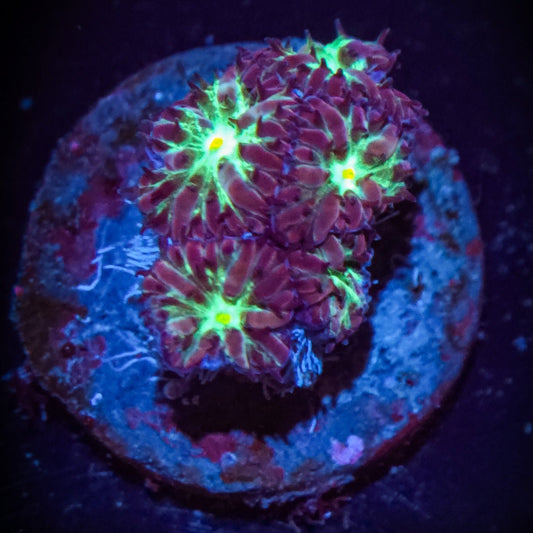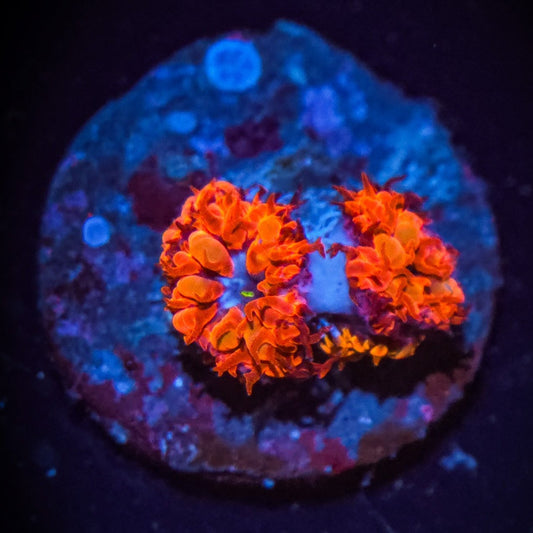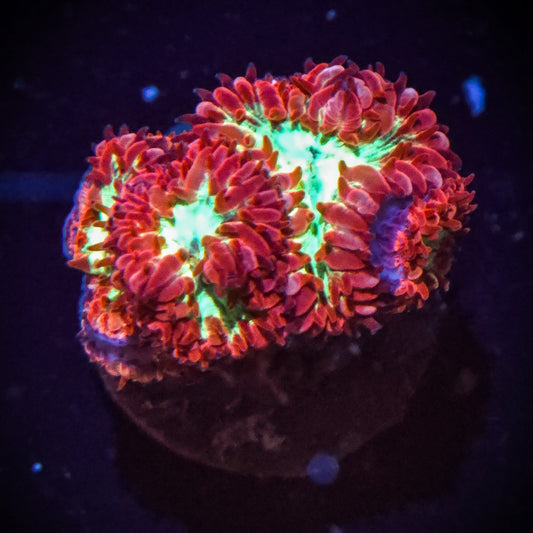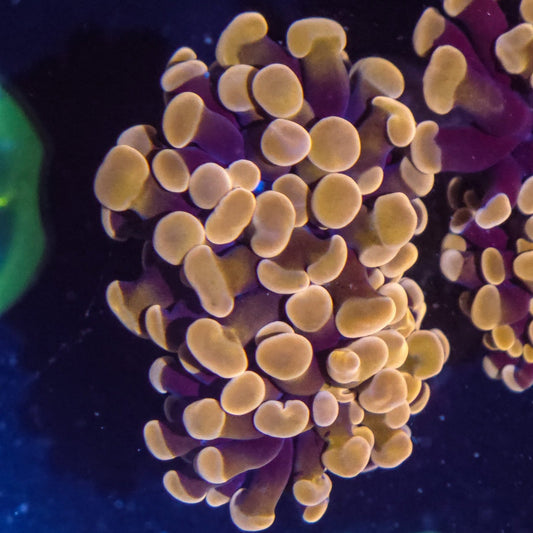Collection: WYSIWYG
Every coral image displayed here represents the exact specimen you will receive! Each photograph captures the unique coloration, pattern, and current size of your individual coral. Please browse our WYSIWYG coral collection below, featuring quality specimens of Blastomussa, Zoanthid, Lobophyllia, Mushroom, Favia, Scolymia, Acropora, Chalice corals, etc.
Contact the Sanctuary Aquatics team online or by phone at 920-385-4802 to start your coral journey!
-
 Sold out
Sold out -
Hawaiian Ding Dang Zoa
Regular price $29.99Regular priceUnit price / per -
 Sold out
Sold out -
AC Timewarp Echinata
Regular price $34.99Regular priceUnit price / per -
AC Sherbert Favia
Regular price $74.99Regular priceUnit price / per -
AC Angel Eye Favia
Regular price $44.99Regular priceUnit price / per -
AC Sonic the Hedgehog Galaxea
Regular price $29.99Regular priceUnit price / per -
AC Rainbow Diaseris Plate
Regular price $499.99Regular priceUnit price / per -
AC Glowstick Chalice
Regular price $199.99Regular priceUnit price / per -
AC Electric Daisy Stylocoeniella
Regular price $19.99Regular priceUnit price / per -
AC Tyree War and Peace Favia
Regular price $44.99Regular priceUnit price / per -
AC Cherry Blossom Favia
Regular price $34.99Regular priceUnit price / per -
AC Raja Rampage Chalice
Regular price $34.99Regular priceUnit price / per -
AC Burning Banana Stylocoeniella
Regular price $24.99Regular priceUnit price / per -
AC WWC Bizarro Cyphastrea
Regular price $29.99Regular priceUnit price / per -
AC WWC Favia of the Gods
Regular price $84.99Regular priceUnit price / per -
AC Looney Tunes Stylocoeniella
Regular price $49.99Regular priceUnit price / per -
AC Ultra Red Bowerbanki
Regular price $74.99Regular priceUnit price / per -
AC Cloudberry Chalice
Regular price $44.99Regular priceUnit price / per -
AC Purple Blasto
Regular price $24.99Regular priceUnit price / per -
Blue Raven Blasto
Regular price $34.99Regular priceUnit price / per -
AC Red and Green Blasto
Regular price $24.99Regular priceUnit price / per -
Peach Hammer
Regular price $49.99Regular priceUnit price / per -
AC presents JF Vino Montipora
Regular price $129.99Regular priceUnit price / per
What You See Is What You Get (WYSIWYG) Corals Overview
Reef keeping is an exciting and rewarding hobby - especially when it comes to choosing and caring for corals. Corals are marine invertebrates belonging to the class Anthozoa, with over 6,000 species found worldwide. These remarkable organisms inhabit tropical and subtropical waters, with the greatest diversity found in the Indo-Pacific region, especially the "Coral Triangle," which includes Indonesia, Malaysia, Papua New Guinea, and the Philippines. The Caribbean also has several large coral populations.
Reef corals do best in shallow, warm waters where sunlight can penetrate to support their symbiotic algae. Hard corals, or scleractinians, are the primary reef builders that create the massive limestone structures we recognize as coral reefs. These ecosystems support approximately 25% of all marine species despite covering less than 1% of the ocean floor.
Soft corals, while not reef builders, add tremendous diversity and beauty to marine environments with their flowing, flexible forms and vibrant colors. With proper care, both hard and soft corals can thrive in your home reef aquarium!
Let's talk a little bit about how to care for tropical coral in your aquarium.
How to Care for Your Coral
Successful coral keeping requires understanding that water quality is paramount, with consistent temperature, salinity, pH, and nutrient levels being essential for coral health. Most corals require intense lighting to support their symbiotic zooxanthellae algae, though lighting needs vary significantly between species.
Proper water flow is equally important, providing nutrients, removing waste, and preventing sediment accumulation on coral surfaces. In addition, regular water testing and maintenance are critical for long-term health of your coral. Key parameters include calcium, alkalinity, magnesium, nitrates, and phosphates, all of which must be monitored and adjusted as needed.
Many reef corals also benefit from supplemental feeding with phytoplankton, amino acids, or specially formulated coral foods. When it comes to coral care, patience is key. Your corals will adapt slowly to new environments and may take weeks or months to show their full potential.
WYSIWYG Coral Species Selection
Our WYSIWYG collection features exceptional specimens from some of the most sought-after coral families in the reef-keeping hobby.
Blastomussa corals offer stunning colors, while Lobophyllia brain corals display incredible fluorescent properties under the proper aquarium lighting. Our Mushroom corals provide easy care with dramatic color variations, and Favia corals showcase intricate skeletal patterns with vibrant polyp colors.
We also have Scolymia, Zoanthid, Acropora, and Chalice corals in our WYSIWYG coral category.
Contact Sanctuary Aquatics for WYSIWYG Corals Today!
The Sanctuary Aquatics team has plenty of expertise in coral care with extensive scientific marine knowledge and many years of practical hobby experience. We carefully design coral reef systems to provide the best possible conditions for a wide range of coral species. We focus on ensuring all coral species thrive and display their best coloration by the time they arrive at your doorstep!
Whether you're an experienced reef keeper or just getting started on your coral keeping journey, Sanctuary Aquatics provides the guidance and resources needed to create a thriving coral ecosystem. Please contact us online or call us at 920-385-4802 today to explore our WYSIWYG coral selection. Browse all our other saltwater coral species here.




